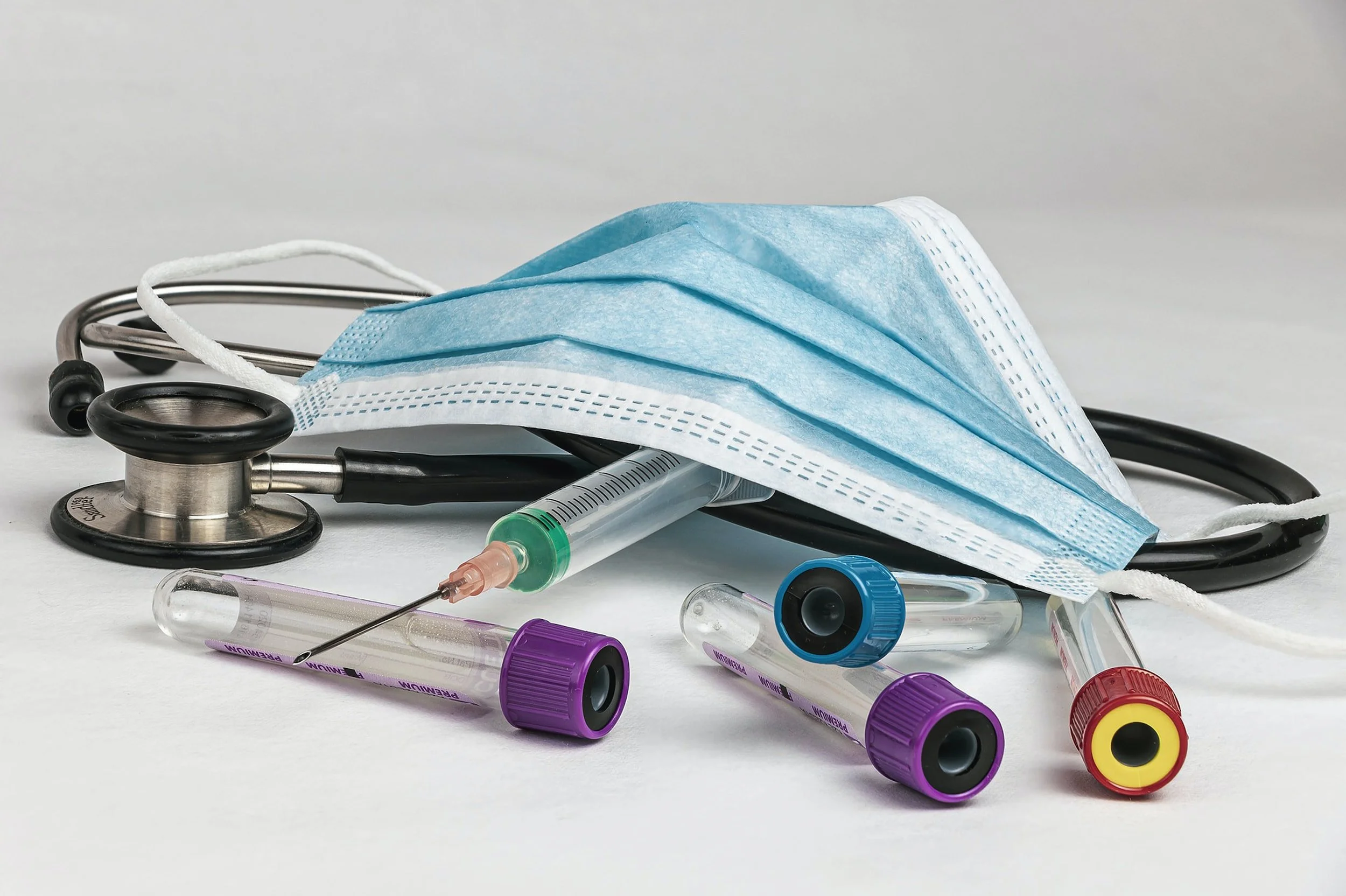Is it possible to get my fertility checked?
You know you want children, though you don’t want to have them right now. But, you’re starting to wonder… are you going to be able to have them? Can you check? Read on and let’s discuss what’s possible.
If you are not actively trying to conceive but you feel worried about your future fertility, you are able to have a reproductive health assessment with a doctor.
Reasons why you might want to talk to a doctor about your fertility include:
You have irregular periods;
Your periods are painful or very heavy;
Spotting occurs before your period starts;
You experience painful sex or pelvic pain at any time of your cycle;
You have a family history of endometriosis or premature menopause;
You are considering egg freezing;
You just want to be informed about how you can optimise your chances of conceiving in the future.
There’s a tendency to be a bit hush-hush about period symptoms, especially period pain - you might have been told that it’s “normal.” But if you experience pain, please tell your doctor.
Cool, so what fertility tests can I have done?
Hold up! Before you roll up your sleeve and start doing tests, your doctor is going to want to talk first. Your gynaecological/obstetric history can provide a lot of information.
Information your doctor might ask for includes:
if your menstrual cycle is regular
what contraceptive methods you’ve used in the past and currently
if you have any pain with intercourse or with your period
if there is any spotting before your period starts
if you have pelvic pain at other times of your menstrual cycle
if you have any hormonal symptoms such as acne, unexplained weight gain or facial hair
if you have a history of STIs
if you’ve had any gynae surgeries
if you have any other medical conditions like autoimmune conditions
if you have a family history of endometriosis or premature menopause
what your lifestyle is like
If you are the kind of person who gets overwhelmed in an appointment and completely forgets what you wanted to say - jot down some notes in relation to the above points, and bring them along.
Your doctor may also perform a physical examination if it’s relevant to your history and current presentation.
Now for the investigations…
Depending on what your doctor discovers from your discussion and physical exam, targeted tests can be utilised to gather more information.
A pelvic ultrasound and AMH blood test are often a part of the work-up, after appropriate counselling on what information these tests can realistically give us.
What happens in a pelvic ultrasound?
In a transvaginal pelvic ultrasound, an ultrasound probe is inserted gently into the vagina so that a more detailed image of the reproductive tract can be obtained. (It should not be uncomfortable - the skill of the ultrasound technician and the use of lubricant can make this a relatively easy experience!)
The ultrasound can assess your ovaries, including performing an ‘antral follicle count’ - which is, as the name suggests, a physical count of a type of immature follicles on your ovaries.
An antral follicle count gives us an idea of your ovarian reserve (i.e. how many eggs you have left) and it’s also a way of screening for polycystic ovaries.
The ultrasound can also look at the lining of your uterus (called the endometrium), and check for polyps, fibroids and even sometimes pick up signs of endometriosis.
KEY TIP: the information that can be assessed by ultrasound can be operator dependent, so if possible, go to a specialised women’s ultrasound clinic. Ask your doctor about this point if you’re not sure.
What is AMH?
AMH stands for Anti-Mullerian Hormone, which is a hormone released by cells in the follicles of your ovaries. It can be detected in your blood.
An AMH test is often part of a fertility work-up and while it gives us some information, please keep in mind that it is only one piece of the puzzle.
The test is used as one way of assessing your ovarian (egg) reserve. If your AMH is below the normal range, it may possibly indicate you have a condition that predisposes you to premature menopause. If your AMH is significantly higher than the normal range, it may indicate another condition like Polycystic Ovary Syndrome (PCOS).
The normal range of AMH changes based on your age. This is because females are born with all of the eggs they will ever have, and this number naturally decreases over time - so when you are older, the AMH range is lower.
Something that the AMH test does not give is any information on the quality of your eggs, your actual likelihood of getting pregnant until you try, or “how long you can wait” – in fact there is no test that can do this!
KEY TIP: If you’re getting AMH checked, it’s best to see a GP who has an interest in fertility – the interpretation of the result and appropriate counselling is very important.
Other possible tests and referrals
Other tests your doctor may discuss with you, depending on your history, include the following.
Hysterosalpingo-contrast-sonography (HyCoSy) or ‘flushing the tubes’: this can check to make sure your fallopian tubes are open. For example if there is a history of untreated STIs or suspected endometriosis, this may be performed.
Blood tests to assess hormones such as testosterone or thyroid function: additional hormone screening might be needed for example if your periods are irregular or there is suspicion of PCOS.
A “late cycle progesterone” blood test to check for ovulation: this is a blood measure of your progesterone levels approximately seven days before your next period.
If there is any concern of endometriosis you will be referred to a specialist to discuss the options of further tests, ways to manage your symptoms and optimise your future fertility.
Will all of this tell me if I am fertile?
Well… it’s the closest you can get to an answer without actually trying to fall pregnant. A reproductive health assessment, if performed thoroughly, will give you the strongest base of information for planning a family in the future.
As mentioned earlier, while we have a few ways of measuring ovarian reserve (i.e. egg quantity) there is no test available for measuring egg quality. What we do know (and it sucks) is that age is the strongest predictor of egg quality, so don’t delay looking into your reproductive health.
It is worth having a conversation with your doctor and taking the time to have recommended testing. Knowledge is power - and as you can see, there is a lot that you can learn about your body and what unique factors may affect your fertility.
This article was co-authored by Dr Ali Hodgkinson, an Australian general practitioner with a special interest in fertility, women’s health and paediatrics. You can stay in touch with Dr Ali on Instagram HERE.
Ready to look a bit more closely at your fertility potential? Nutrition and lifestyle are two factors affecting your fertility and they are factors that you can influence, in a positive way! Book a complimentary 15 minutes discovery call and let’s discuss what you can do.




